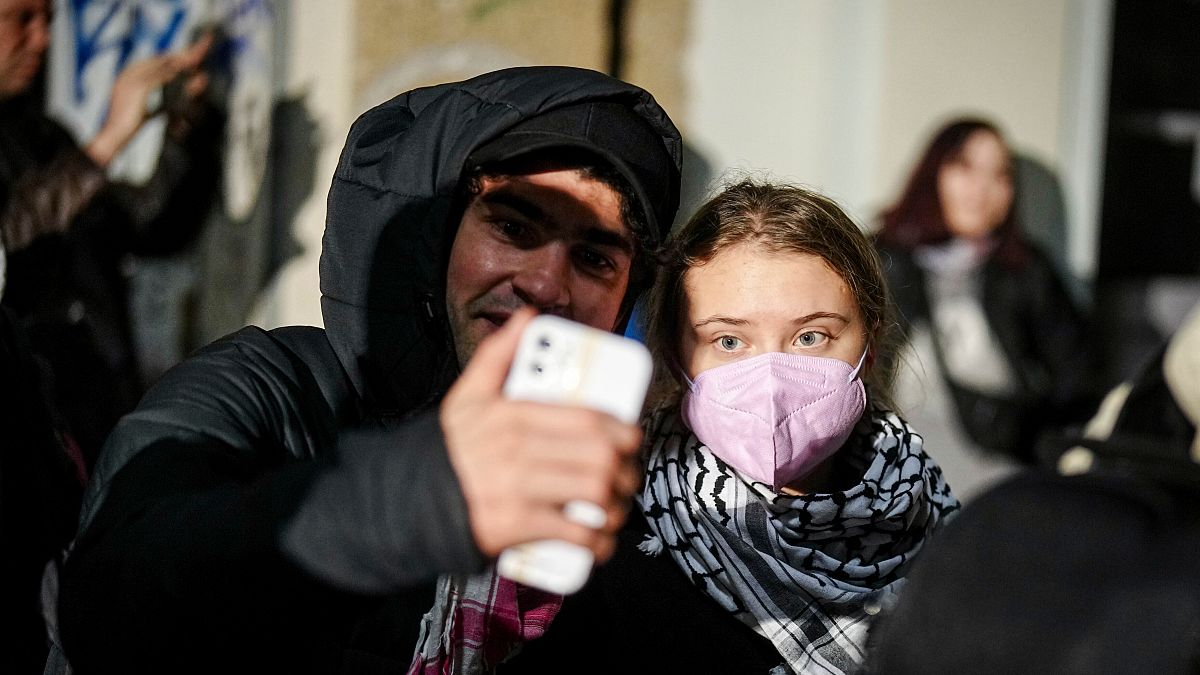Climate activist Greta Thunberg’s participation in pro-Palestinian protests has sparked controversy in Germany. Politicians from the Christian Democratic Union are calling for her entry ban, labeling her as an anti-Semite for inciting hatred against Israel and denigrating the police. Thunberg had accepted an invitation to attend a pro-Palestinian protest camp in Dortmund, which was later cancelled by police citing concerns over the number of attendees she would attract. Thunberg criticized Germany for silencing activists who speak out against the genocide and occupation in Palestine, accusing the country of threatening them.
Organizers of the event in Dortmund expressed their disappointment over the last-minute cancellation, stating that they would file an appeal against it. Thunberg, draped in a traditional Palestinian keffiyeh, shared her thoughts on the cancellation in a video on Instagram. She had previously been seen in Berlin attending a protest marking the anniversary of the 7 October attacks. Following the protest, Thunberg criticized the German police’s handling of peaceful protesters, stating that she was at a loss for words to describe their actions.
This incident in Dortmund is not the first time Thunberg has faced backlash for her involvement in pro-Palestinian protests. In early September, she was forcibly removed by police officers in Stockholm, and last week, she was detained by Belgian police after participating in a demonstration against EU subsidies for fossil fuels. Despite the controversies surrounding her activism, Thunberg continues to speak out on issues related to climate change and social justice, using her platform to raise awareness and demand action from world leaders.
The debate over Thunberg’s activism highlights the complex relationship between climate change advocacy and political activism. While some view her as a hero for speaking truth to power and pushing for urgent action on climate change, others criticize her for veering into political territory and taking controversial stances on issues like the Israeli-Palestinian conflict. Thunberg’s outspoken nature has made her a polarizing figure, with supporters applauding her courage and determination while detractors question her motives and accuse her of being manipulated by adults with their own agendas.
Despite the criticism and backlash, Thunberg remains undeterred in her activism, using her platform to draw attention to pressing issues and mobilize young people around the world to take action. Her influence on the global climate movement cannot be ignored, as she continues to inspire millions of people to join the fight for a sustainable and just future. While her involvement in pro-Palestinian protests has sparked controversy, it has also shed light on the interconnectedness of social justice issues and the urgent need for collective action to address the root causes of environmental degradation and inequality.
As the debate over Thunberg’s activism rages on, it is clear that her impact on the global stage is undeniable. Whether you agree with her methods or not, one thing is certain: Greta Thunberg has succeeded in sparking a global conversation about climate change and social justice, challenging world leaders to take meaningful action and inspiring a new generation of activists to stand up and fight for a better world.









